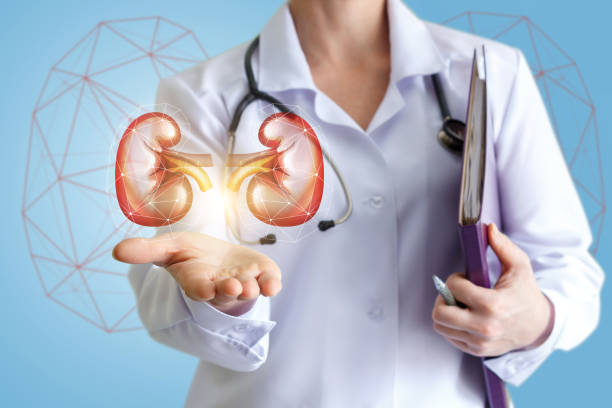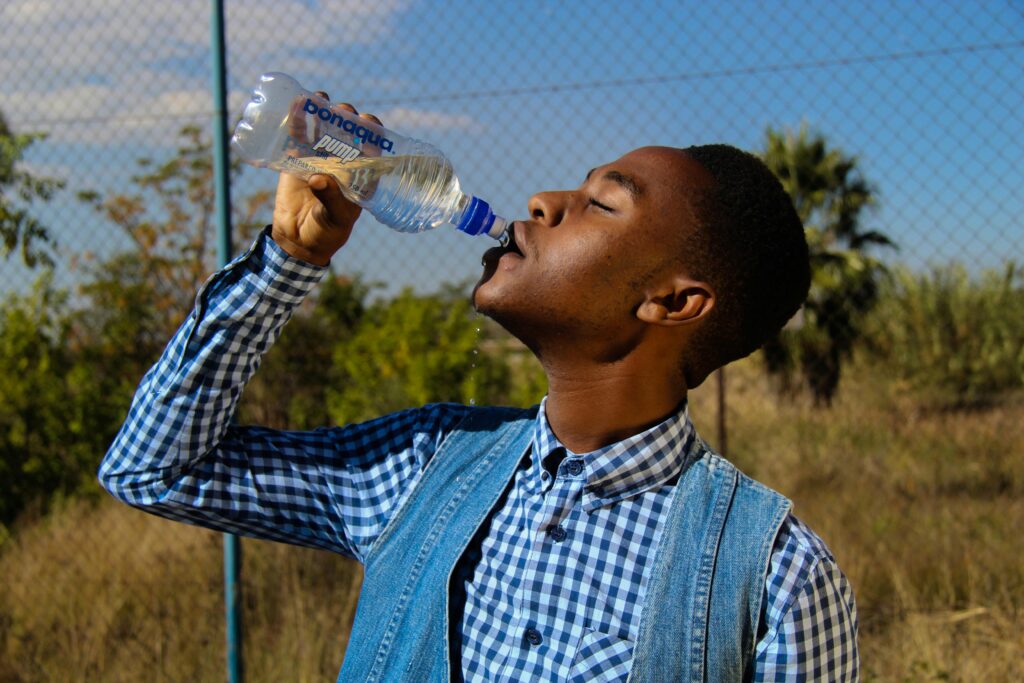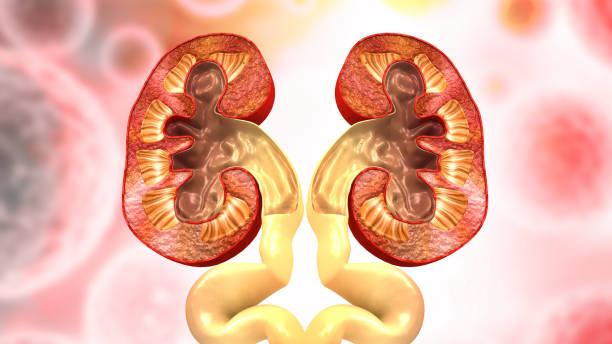Knowledge on how to maintain healthy kidney is crucial so that people do not end up being terminated with their kidney functions. Kidneys are vital organs charged with responsibilities of filtering waste products, regulating fluids and electricity within the body. However, very few people give much consideration to the need for proper handling of the kidneys, with the result that health complications arise unnecessarily.
With Kidney Care, you can improve your kidneys’ health and avoid conditions such as kidney stones or chronic kidney disease, all through a few relatively basic changes in a daily routine.
Here, you’ll find practical advice regarding how to maintain healthy kidney and what to do to keep them healthy. From the type of foods you should eat to the minor modifications you should make in your daily life to safeguard these very organs, you’ll find it here. Whether increasing water intake or managing a medical condition, maintaining kidney health is achievable and essential.
Not giving attention to the kidney is great harm since it helps enhance the quality of life besides reducing long term effects. Following these ten tips should help assure that your kidneys will continue to function optimally for as long as you live.
Understanding the Role of Kidneys

Understanding the functioning of the kidneys is primary to understanding how to maintain healthy kidney, so here is a brief overview of their function.
Kidneys are important organs in the body and primary function in filtering waste in the blood, controlling fluid volume, and electrolyte balance. They equally secrete hormones that regulate blood pressure, enhanced bone formation and the production of red blood cells. If a person’s kidneys are not working effectively, dangerous substances accumulate in the body and cause diseases.
Some of the most familiar kidney disorders are renal calculi, infections and chronic kidney disease CKD. The disease progresses slowly and patients may not notice any signs of CKD until the late stages. This implants that constant checking and prevention work are essential in preserving the functionality of the kidneys.
Laymen might find it hard to comprehend, but your kidneys are always busy; filtering nearly 200 liters of blood. Understand that when you read about these body parts and realize their significance, you will be able to protect them.
As such, adapting a kidney-friendly lifestyle enables these organs to keep working properly. Therefore, understanding these functions is a first step in finding out how to keep one’s kidneys fit. Minor modifications today contribute to reducing various diseases in the future, protecting the health and quality of life.
The following sections provide practical recommendations, covering kidney issues, hydration, diet, and medical checkups for optimal kidney health.
Tips on How to maintain healthy Kidney
Stay Hydrated

One is required to take a lot of water when learning how to maintain healthy kidney. Water assistance kidneys in eliminating wastes and maintaining the body’s electrolyte system. Lack of proper fluids weakens your kidneys and may cause the efficiency of waste filtration to decrease. That is why, taking sufficient amounts of water maintains the work of the kidneys and prevents such problems as renal stones.
To meet this need, one must consume anything in between 8 to 10 glasses of water per given day. They should tweak the consumption in respect to the amount of physical activity, weather conditions or a doctor’s prescription. Do not take products with sugar or caffeine, as they cause dehydration of the body. Drinking water plays a central role in the sound functioning of the kidneys; overall, its incorporation into a person’s daily schedule is very effective. It should be noted that water helps the kidneys stay healthy in the long run.
Maintain a Balanced Diet
Diet is therefore an essential factor, which must be given due consideration when looking for ways on how to maintain healthy kidney. Eating more fruits, vegetables and lean meats boost the function of the kidneys. Antioxidants found in many fruits, vegetables such as berries and fresh leaves are beneficial in preventing kidney damage. Avoid or reduce the consumption of foods that contain processed sodium since they cause harm to kidneys.
A balanced diet also helps to control high Blood Pressure and blood sugar, both of which have scary impacts on the kidneys. Moreover, as confirmed by many experts, the consistent selection of healthy meals will not cause harm to the kidneys and will avoid complications. Eating properly makes certain that your kidneys are as healthy as they should be. An important achievement that helps prevent the progression of chronic kidney diseases is proper nutrition.
Read More
7 Habits of Effective Teens
Books on Self Improvement
Limit Sodium and Processed Foods
Sodium elimination and avoiding foods that are processed are two big aspects of learning How to maintain healthy Kidney. High intake of sodium results in high blood pressure strains the kidneys as they work to filter excess sodium. Various ready, processed foods available in cans, such as soups, snack foods, and other fast foods, contain high intensity of salts and unhealthy additives dangerous for kidneys.
Avoid processed foods and fast foods, and try to eat food prepared at home using natural herbs and spices which do not contain a lot of salt. One can also use the nutrition facts panel on packaging to uncover more concealed salts in processed foods. These foods contain substances filtered out by your kidneys, protecting them from strain. Moderation positively supports kidney health.
Control Blood Pressure and Blood Sugar
Lifestyle changes are essential in learning how to manage blood pressure and blood sugar levels, especially for sick kidneys. The blood vessels in the kidneys can be damaged by high blood pressure or the blood sugar level in diabetes can cause kidney failure.
Be aware of these indicators and choose a doctor who can recommend changes in behavior or prescribe drugs.
Living a healthy lifestyle helps to manage these factors in the following ways; consuming foods low in potassium, exercising and avoiding stress. Health checkups are included to make sure any problem is detected early enough.
Staying healthy in this way helps to keep the kidneys functioning well and keeps the body in good nick. It hence means that caring for your kidneys involves treating these underlying diseases successfully for the health of the kidneys to improve.
Exercise Regularly

Exercise is one of the principal approaches to how to maintain healthy kidney. any physical exercise aids to prevent high blood pressure and avoid excessive weights and this is very important to the health of kidneys. Drinking water is good, and simple physical exercises that enhance the flow of blood and also put little pressure on kidneys include: walking, swimming and doing yoga.
Try to exercise at least 30 minutes every other day of the week at moderate intensity. However, do not overexert yourself, this may put a lot of pressure on the kidneys if one is a carrier of some health condition. Combining exercise and water drinking makes your body organs work to the optimum. As important as it is for your kidney’s health, exercise helps keep your body healthy in other ways too.
Avoid Overuse of Painkillers
Reducing the intake of OTC medications is something that you need to know in order to prevent the deterioration of kidney health. Recreational drugs and other over the counter drugs that could have negative impact to the kidneys include those such as ibuprofen and Aspirin among others if taken uncontrollably or without the prescription of a doctor.
Those with kidney disorders are extra vulnerable to these medications slightly as they affect the kidney a bit more.
Anyone with a chronic condition should not take any pain medication without consulting a doctor. If stretching, warm packs, meditation or other non-drug treatments can be used to alleviate pain, avoid taking a pain-killer.
These medications are not always necessary, so by not taking them you protect your kidneys from further damage. Kidney health care also involves the appropriate medication use and trying to be wiser.
Monitor Weight and Maintain a Healthy BMI
Watching how much you weigh is very important when people are learning how to take care of their kidneys . The higher blood pressure and diabetes that come with obesity leads to the stress of kidneys in the body. Adhering to a healthy diet, avoiding excessive body weight, and exercising greatly helps your kidney not to work harder than it should.
Now it is enough to limit the consumption of processed products and do moderate physical exercise. Early signs showing that these goals are not achievable make it easier to check the weight frequently. Maintaining your weight is one way of preventing kidney problems from arising in the first place.
Quit Smoking and Limit Alcohol Consumption
Smoking should be stopped and alcohol intake should be moderated in order to protect the kidneys. Smoking decreases circulation within the kidneys and in turn limits the amount of work that can be accomplished.
It also raises the chances of developing renal cell carcinoma, according to a research study. Likewise, alcohol consumption….it results in dehydration and hypertension which are detrimental in kidney related issues.
If you find that you are smoking or using alcohol often then seek help in quit smoking programs or consult a doctor. Replacing behaviors that are damaging to the kidneys with health promoting behaviors maintains the longevity of the kidneys. Letting go of certain behaviors, which are likely to harm your kidneys, is a part of kidney care.
Signs of Unhealthy Kidneys

Learning how to identify signs of unhealthy kidneys is crucial in coming up with ways of keeping the kidney healthy. Recognizing early symptoms like fatigue, leg swelling, exhaustion, and concentration issues can prevent many kidney complications. Another sign of kidney problems might be a change in the act of urinating, including producing foam or red color or having to urinate very often.
Other earliest signs of kidney stress include high blood pressure and lower back pain. If untreated, these symptoms may worsen, leading to chronic kidney disease (CKD) or end-stage renal disease. They also marked vomiting and loss of appetite as other symptoms of poor kidney health, and dry itching skin among the symptoms.
He noted that basic checkups or a urine analysis or any blood tests can spot previous unnoticed issues. Seeking medical check up when these signs occur prevent any risks associated with the disease. It is important that people concerned with how to have healthy kidneys must try and look at these signs.
Both preventive measures and timely diagnosis help to save the kidney function and patient’s health. Being proactive is crucial for preserving long-term health, especially when addressing early signs of kidney problems. This makes identifying symptoms to be another effective step in the preservation of kidney health.
Conclusion
Kidney health is very important for the overall health and quality of life and thus importance needs to be given to kidney functions. It’s crucial to learn how the kidneys work so that you can do everything you can to keep the organs healthy.
Apart from proper medications, some of the measures that are considered important in the management of CKD include; water intake, proper diet, and exercise. Moreover, taking care never to abuse pain relievers, controlling hypertension levels, and controlling blood sugar levels, and stopping smoking are also equal to kidney health.
It’s also important to identify early signs of unhealthy kidneys too. Measures include regular doctor visits to monitor progress and detect worsening signs like swelling, fatigue, and urination changes.
Timely intervention for kidney issues increases the chances of recovery, preventing long-term organ damage.
Following all the highlighted tips on this guide will therefore take you a long way in maintaining healthy and functional kidneys for several years. Better care for the kidneys is not a whim to avoid the development of pathology – it is the restoration of the full functioning of individual organ systems and the body as a whole.
